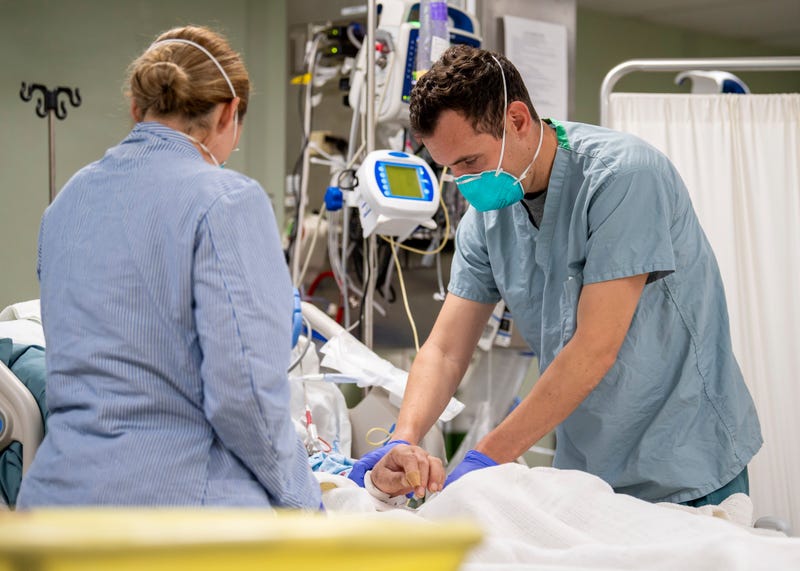
The U.S. passed another grim benchmark in the coronavirus pandemic this week: 150,000 Americans have now died from COVID-19.
There were 1,461 new deaths were recorded Wednesday, which is about one person every minute.
Dr. Eric Feigl-Ding, Epidemiologist and Senior Fellow at the Federation of American Scientists in Washington, D.C. put it another way.
"150,000 is basically 50 9/11’s. A 9/11 every day for 50 days. That is just a catastrophic scale and we’re not even done yet," he told KCBS Radio’s Stan Bunger on "Ask An Expert" Thursday. He estimated that with the way the pandemic is headed, 250,000 Americans could die by the November presidential election.
He predicted that as the pandemic continues on, there will be a growing gulf in its severity across states because of the wide variety of strategies instituted by state and local leaders.
"The U.S. has no national strategy, so I’m not sure if there’s an easy way out of this until we have a vaccine or until there’s national leadership to have a comprehensive testing, tracing and mask mandate," he said.
With growing evidence that aerosols can be infectious, an important part of that strategy will be ventilation and stricter limits on indoor activities.
Large droplets are emitted from your mouth and nose when you sneeze, talk or cough and will quickly land on the group within six feet.
In contrast, aerosols are "these micro, microdroplets that are not pulled down by gravity. They stay in the air because of air currents and heat rising from your body and the room. They stay in the air for 20 minutes to up to 4 hours and can actually survive in stagnant air for up to 16 hours," Dr. Feigl-Ding explained. "This is why ventilation - masks are so important to catch your droplets - but also ventilation is so important to make sure you vent out any stale, bad air."
The spread of aerosols can be compared to cigarette smoke; even when smokers are separated into their own section of a restaurant or airplane, the smoke still permeates the air in other areas.
"For anything indoors now, like social distancing in bars, the six-feet rule doesn’t even count anymore," he said.
Masks, ventilation and frequent disinfection should be widespread.
But mask mandates and limits on indoor activities have been highly-politicized and controversial and are not in place in many parts of the U.S.
Dr. Feigl-Ding believes that the virus will continue to surge without a national mask mandate and comprehensive strategy.
Other countries that were able to flatten the curve in earlier months such as Japan, France, Germany, Spain and Israel are all experiencing resurgences in the virus.
"The moment you get a little sloppy and lackadaisical, the virus will come back."

